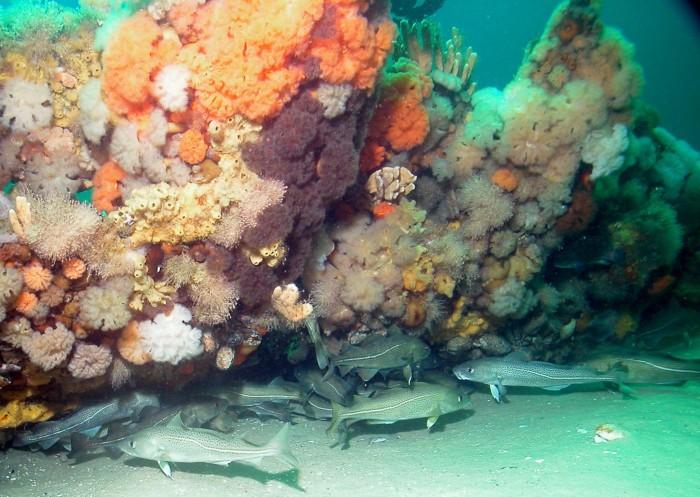According to foreign media reports, studies have shown that reducing fishing and responding to environmental changes will help cod recover. A study led by Rutgers university and oslo university suggests that overfishing may not have allowed the genes of atlantic cod, an iconic species, to evolve and mature earlier, and that the study has significant implications for marine conservation.

"To some extent, evolution has been used as an excuse that overfished cod and other species have not yet recovered," noted malin L. Pinsky, lead author of the study, "and our findings suggest that more attention to reducing fishing and addressing other environmental changes — including climate change — will be critical to restoring fisheries." We can't use evolution as a scapegoat to escape the heavy lifting of the cod recovery. ”
The study focused on Atlantic cod near Newfoundland and Norway, Canada, and the paper was published in Proceedings of the National Academy of Sciences.
In the northwest atlantic, cod is found from Greenland to Cape Hatteras in North Carolina. In U.S. waters, cod is most common on the George Coast and west of the Gulf of Maine, but both are overfished. Cod can grow up to 51 inches, weigh up to 77 pounds, and live longer than 20 years.
Over the past few decades, much of the debate has focused on whether the evolution of cod — a phenomenon known as fishery-induced evolution — is a response to fisheries. Cod, for example, now mature much earlier. Pinsky said there is concern that if fish evolve, they may not recover even if their catch decreases.
He noted that cod populations that mature later can produce more offspring and avoid predators more effectively. They are also better resilient to climate change, more stable and less likely to collapse.
Both theories and experiments have shown that fishing leads to early maturation. But before the new study, no one tried to sequence the entire genome before intensive fishing to determine if evolution had already occurred. In response, scientists sequenced the ear bones and scales of cod in Norway in 1907 and Canada in 1940, and modern cod in the same population. In the early 1990s, cod populations in northern Canada declined sharply due to overfishing, while cod populations in the northeastern Arctic near Norway faced higher catch rates, but smaller declines.
Pinsky said: "We found that cod probably did not evolve as a result of fishing. There was no significant loss of genetic diversity, and no significant changes suggesting that intensive fishing led to evolution. We can't completely rule out the possibility of evolution occurring, but it's more likely that fish develop earlier in response to the environment, and if the environment changes, they will be able to develop and mature later, which is good for the species. ”
The study says the scientists' findings complement the literature review and evolutionary models that conclude that the direct impact of fisheries on populations and ecosystems is more pressing than the evolutionary effects of fisheries. Avoiding overfishing and reducing fishing pressure remain important management strategies when stocks are declining.
Pinsky said: "The big question is whether other species, especially those with shorter lifespans, may show signs of evolution compared to long-lived cod." We are studying this by sequencing DNA from 100-year-old specimens from the Smithsonian National Museum of Natural History. ”